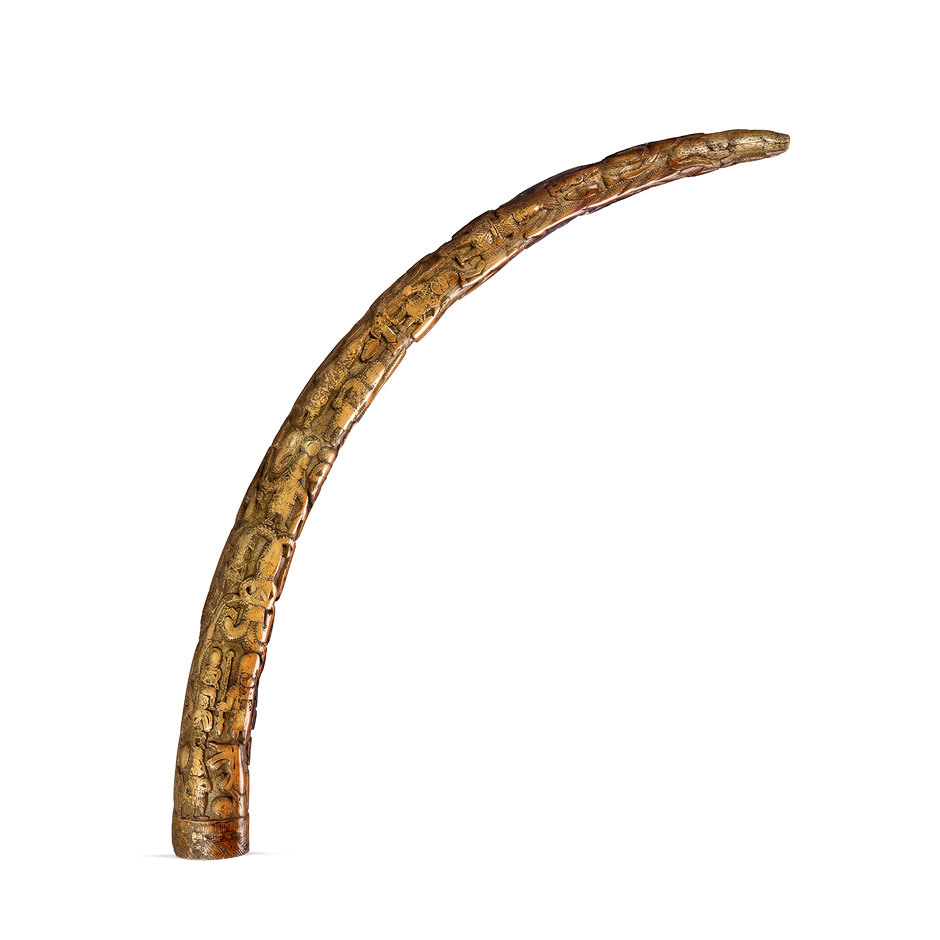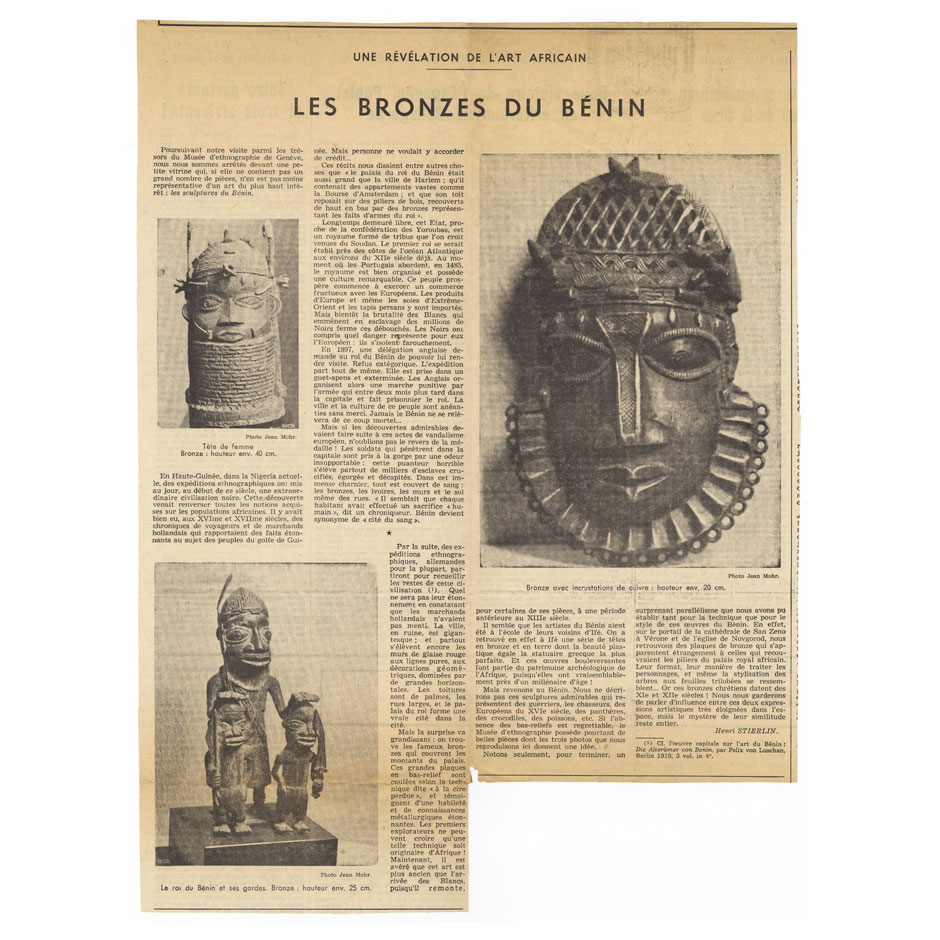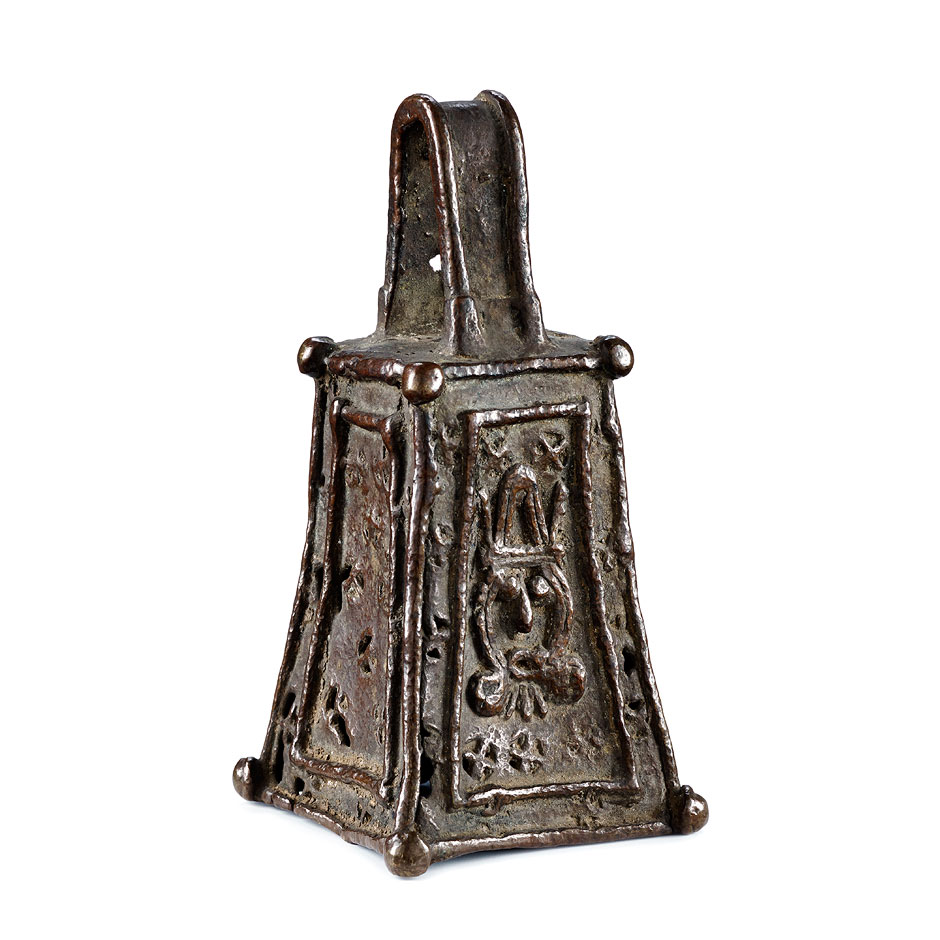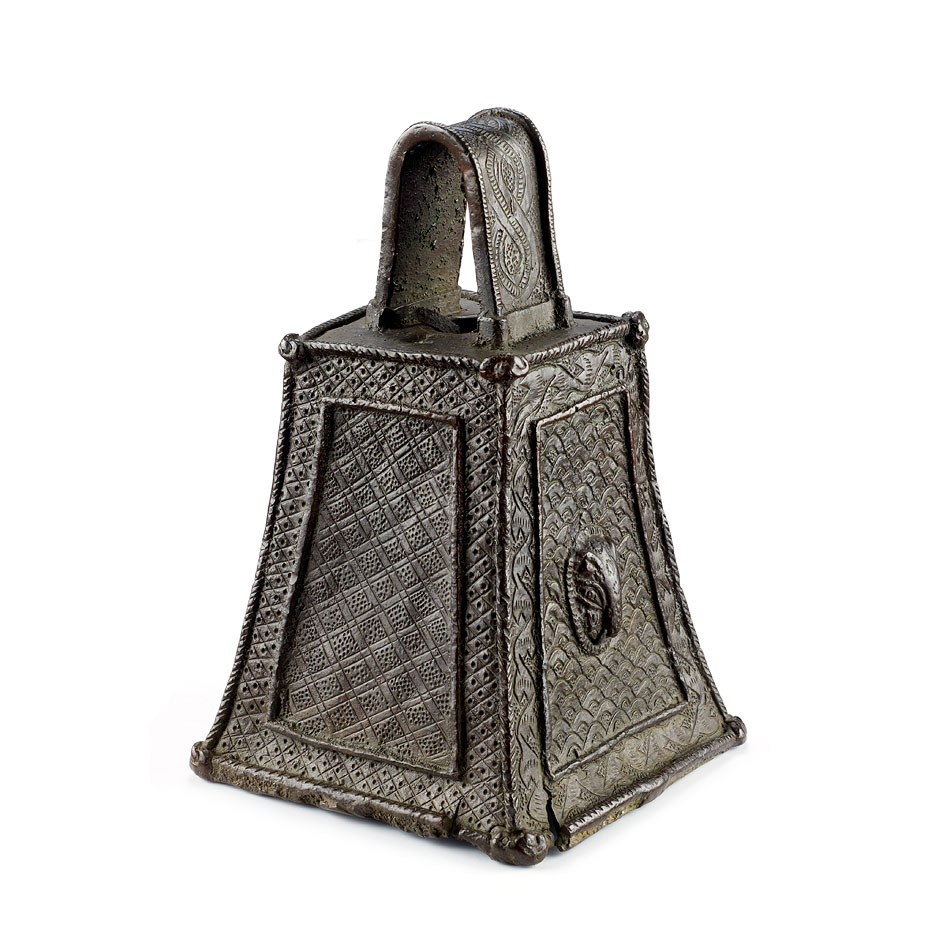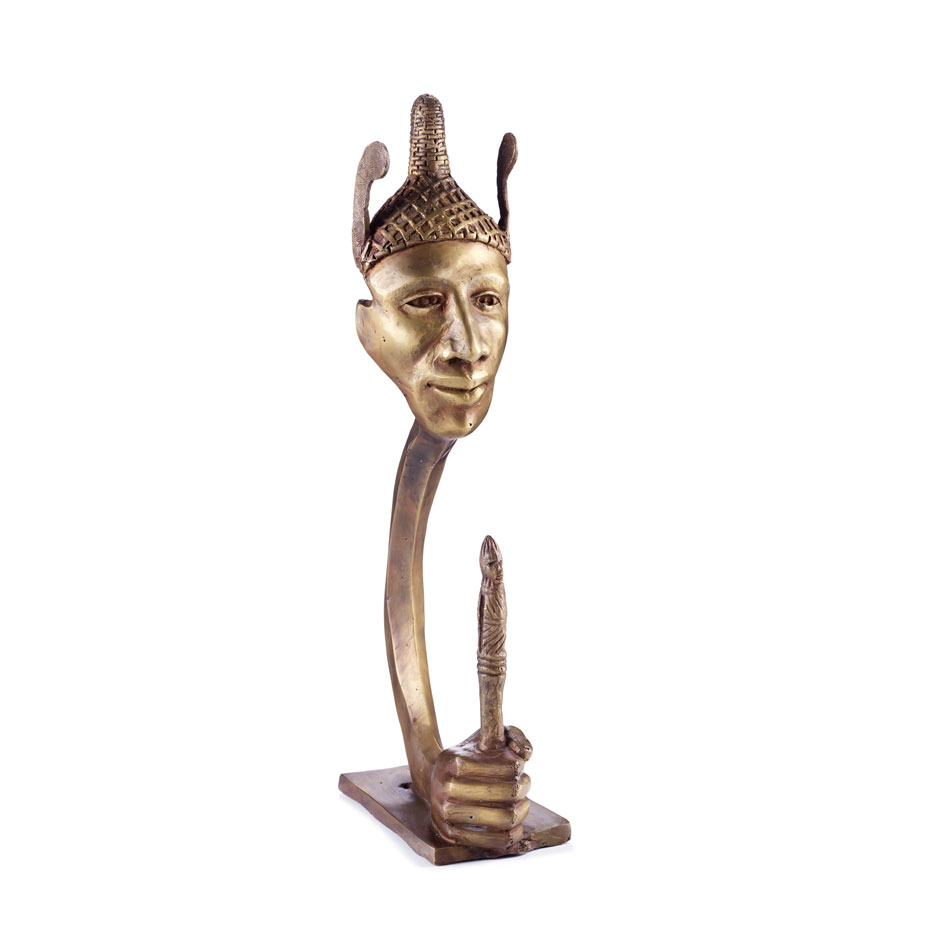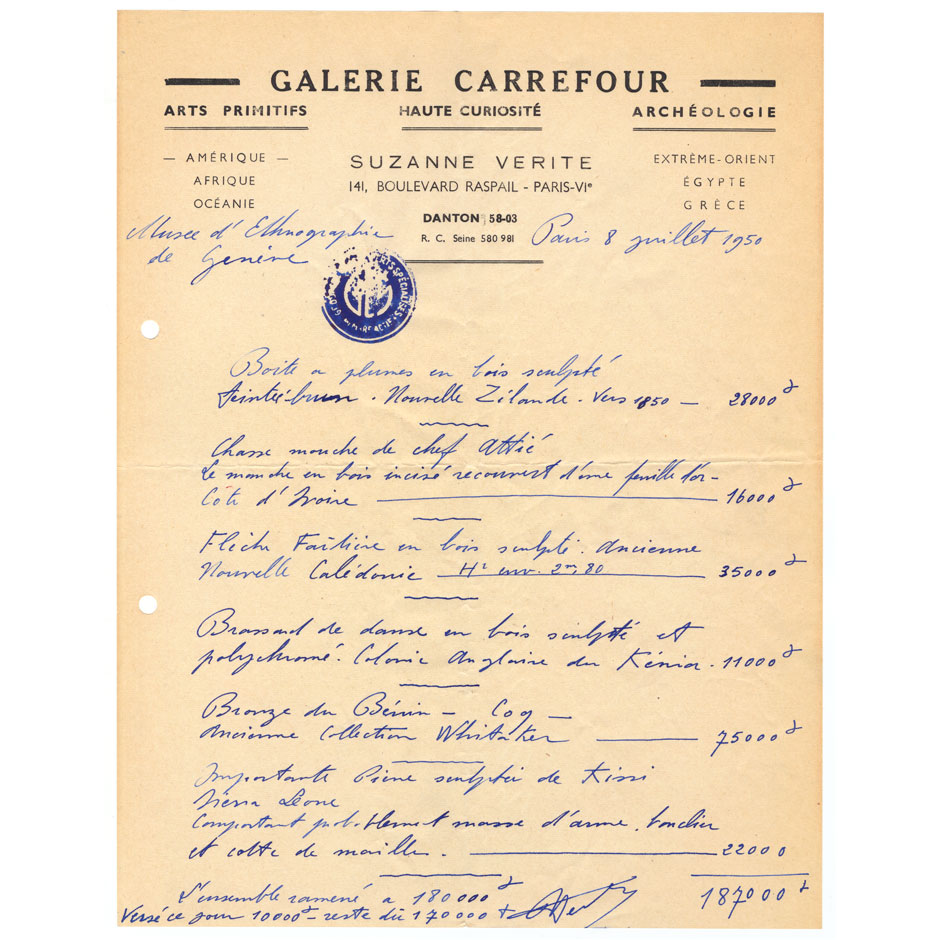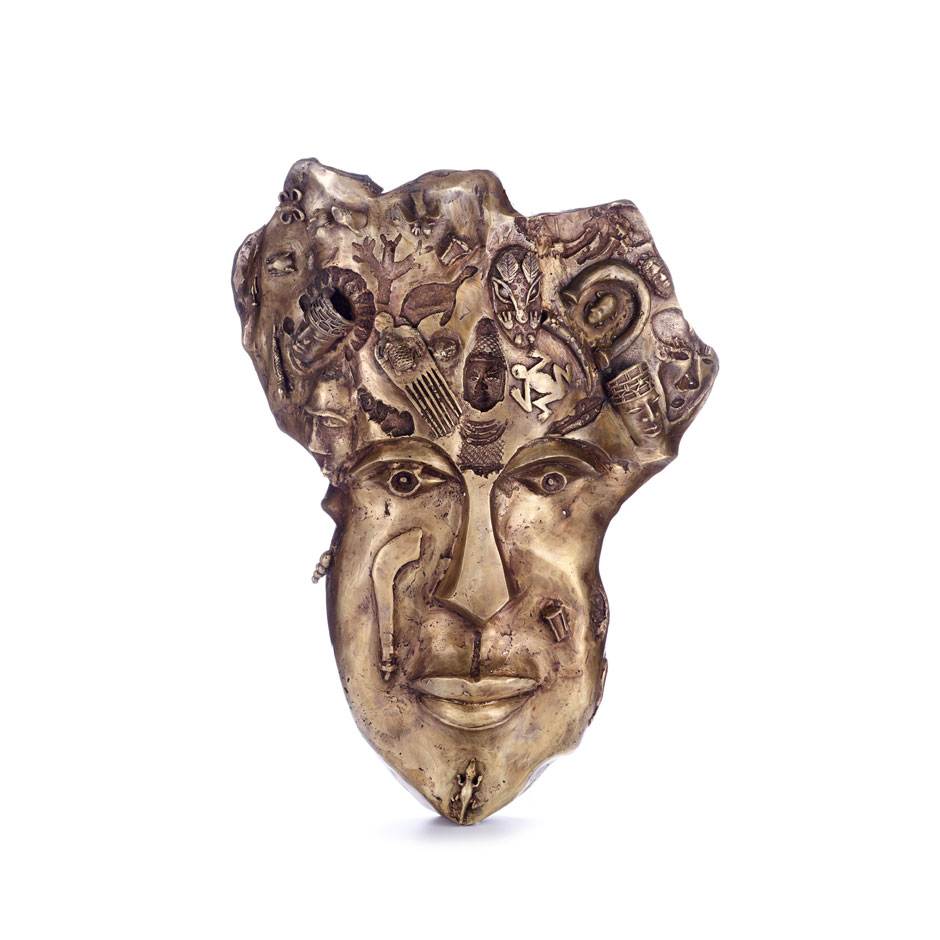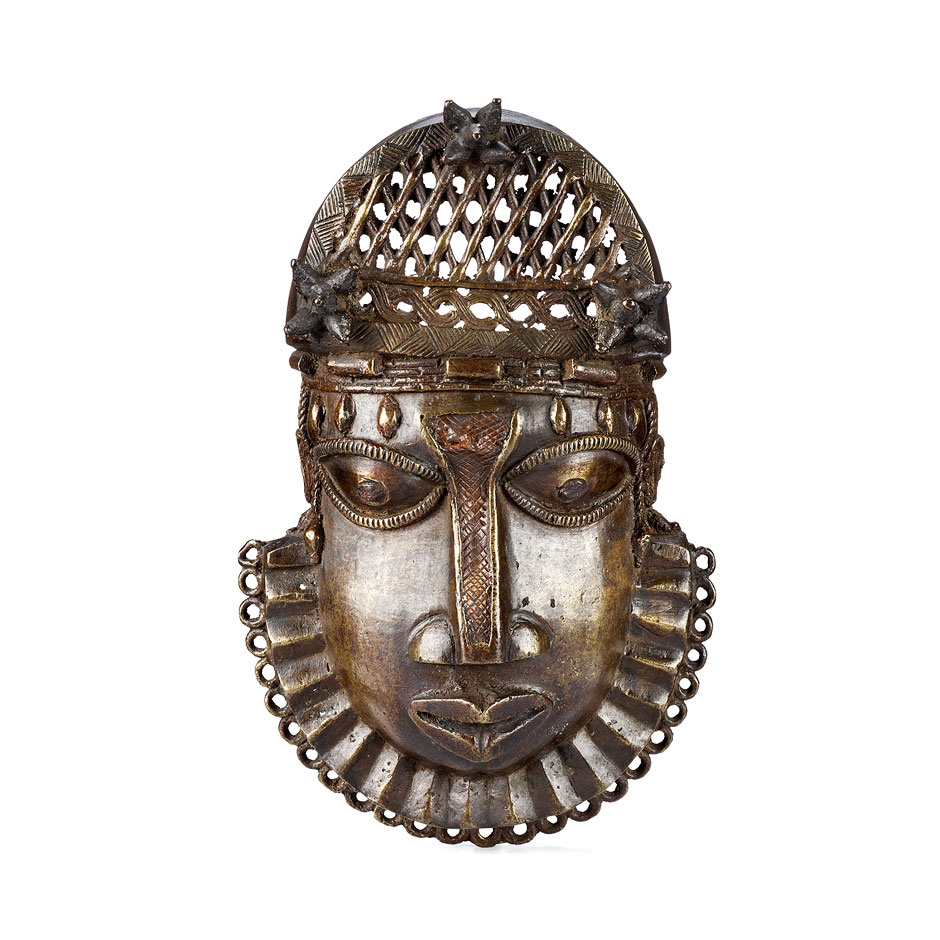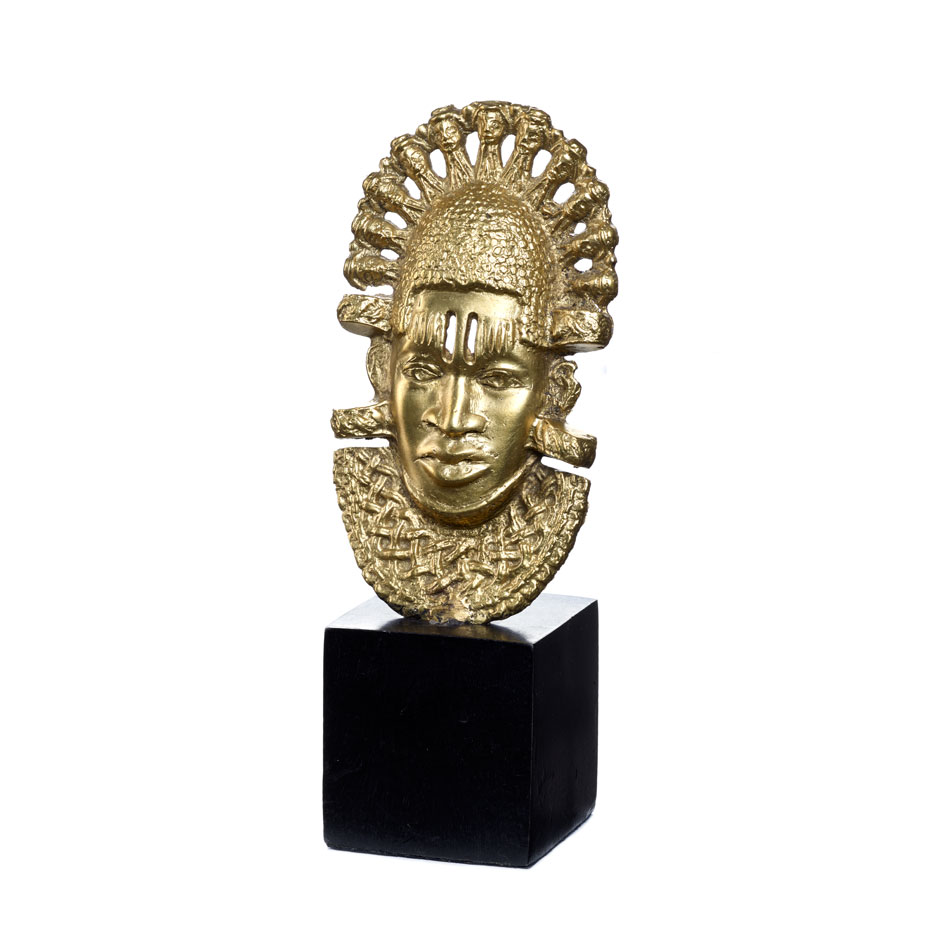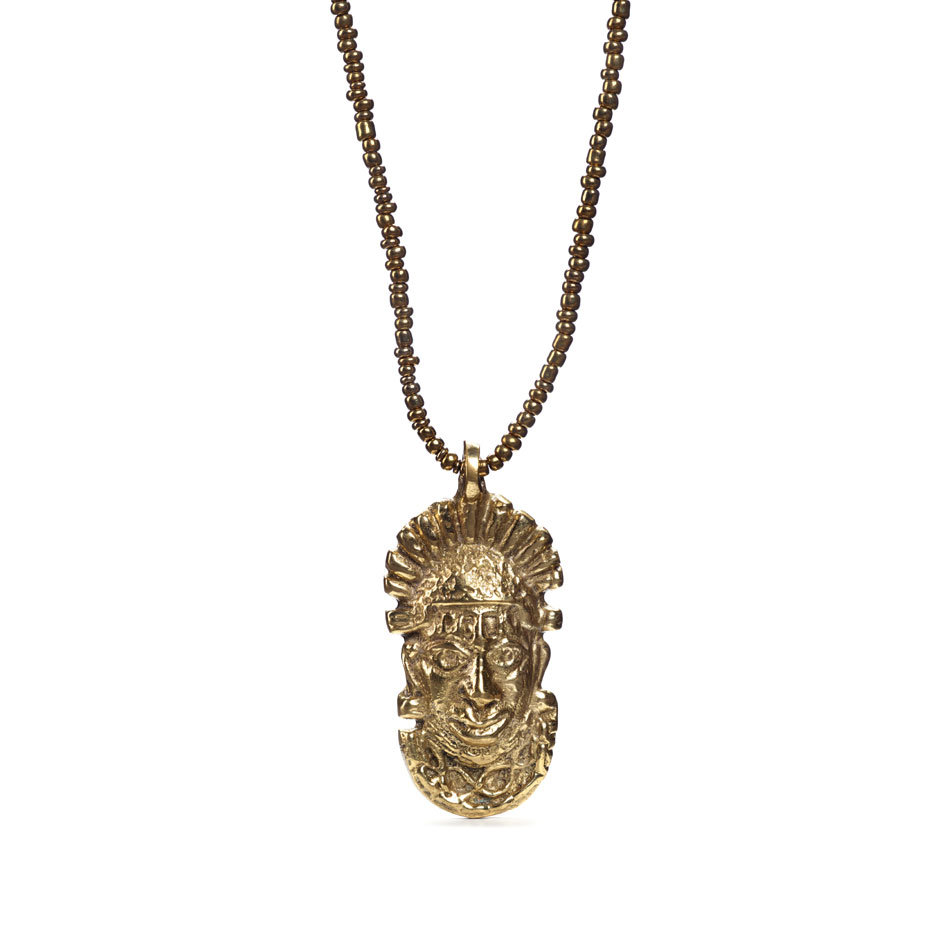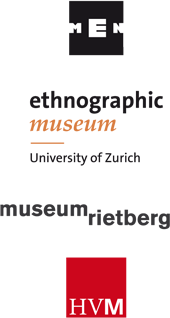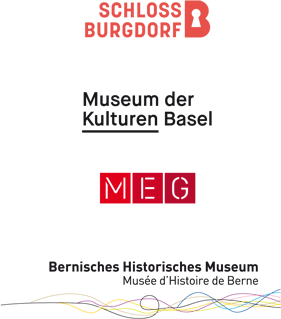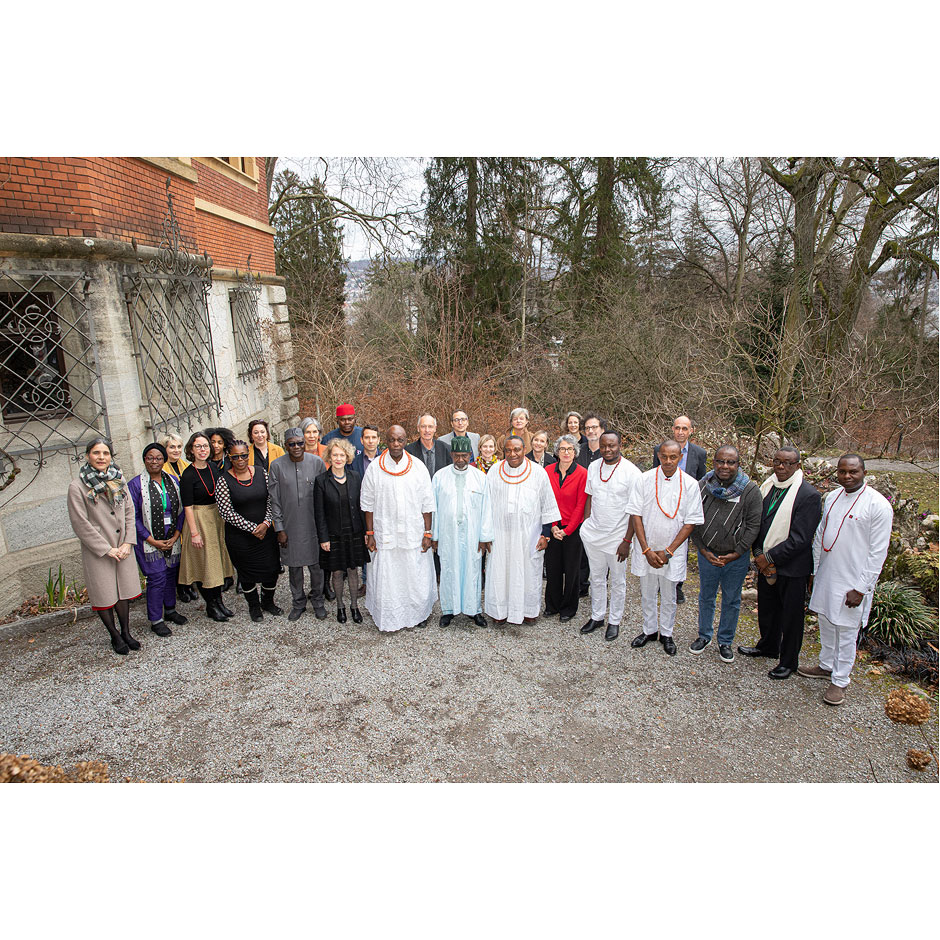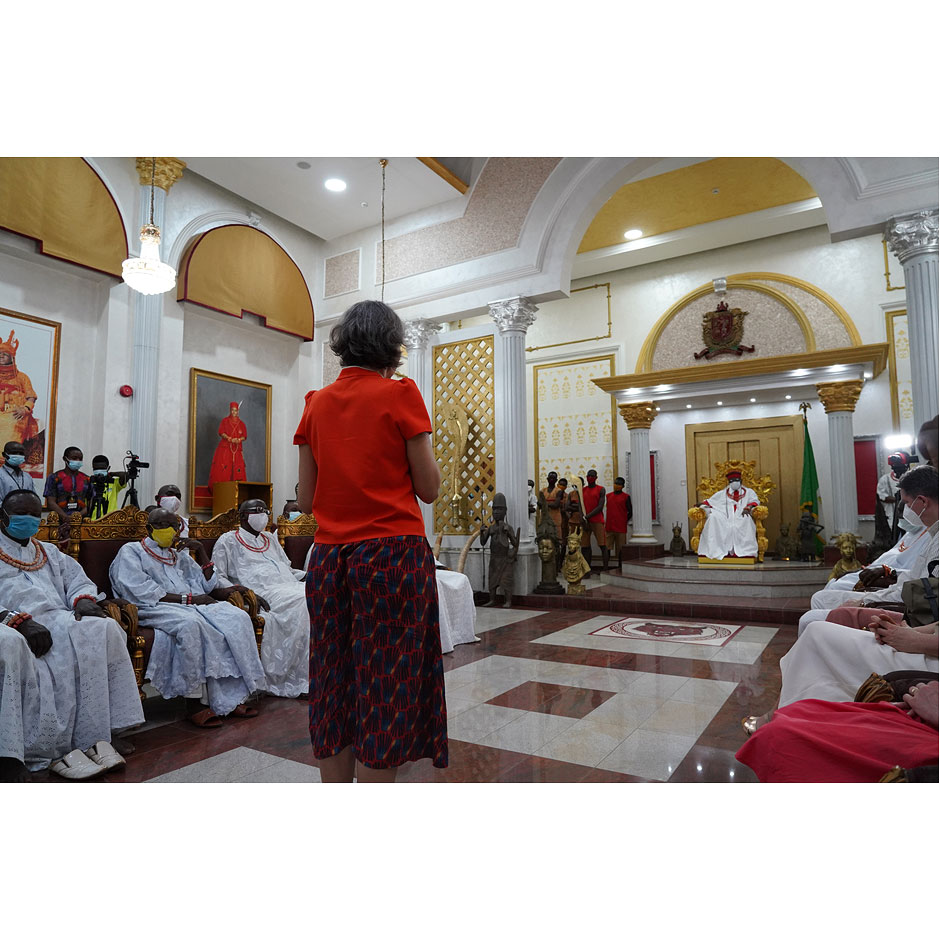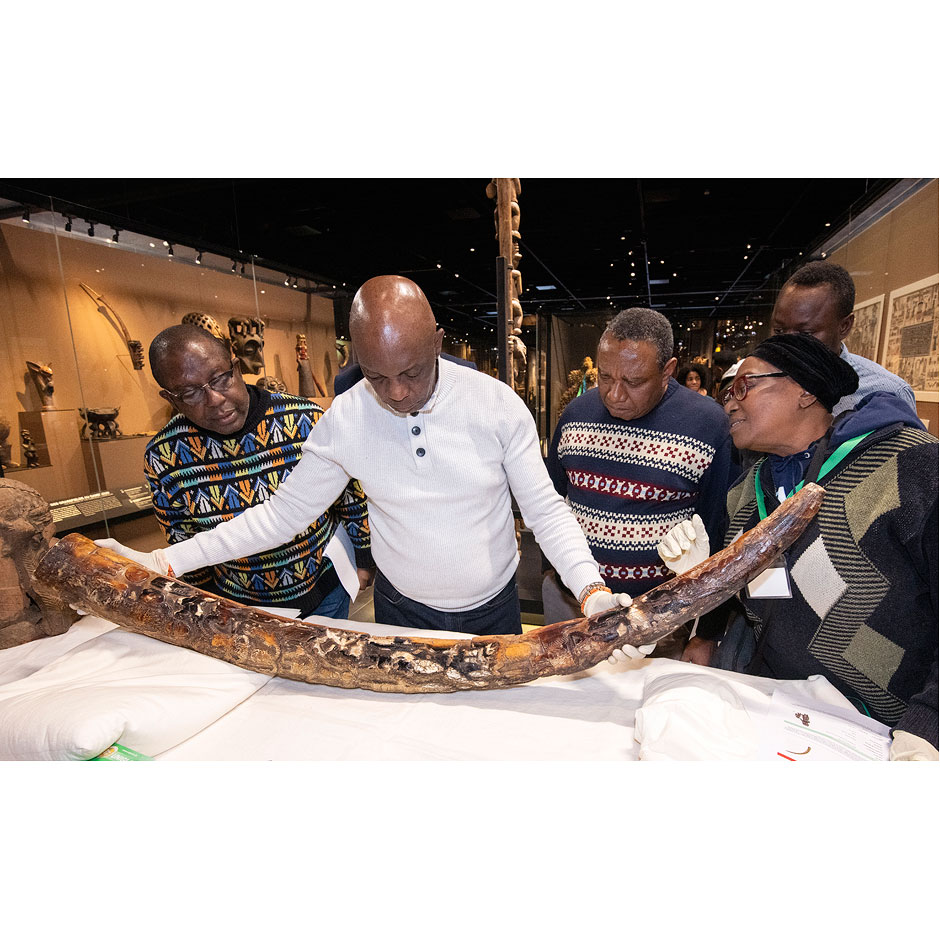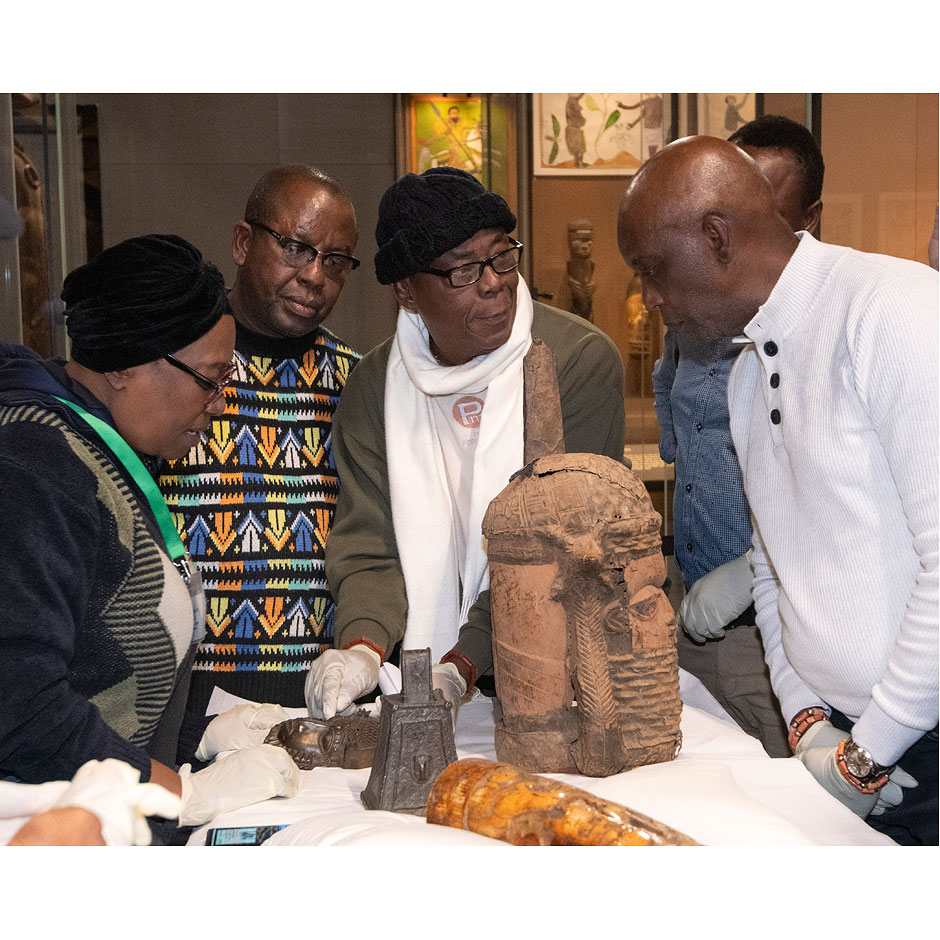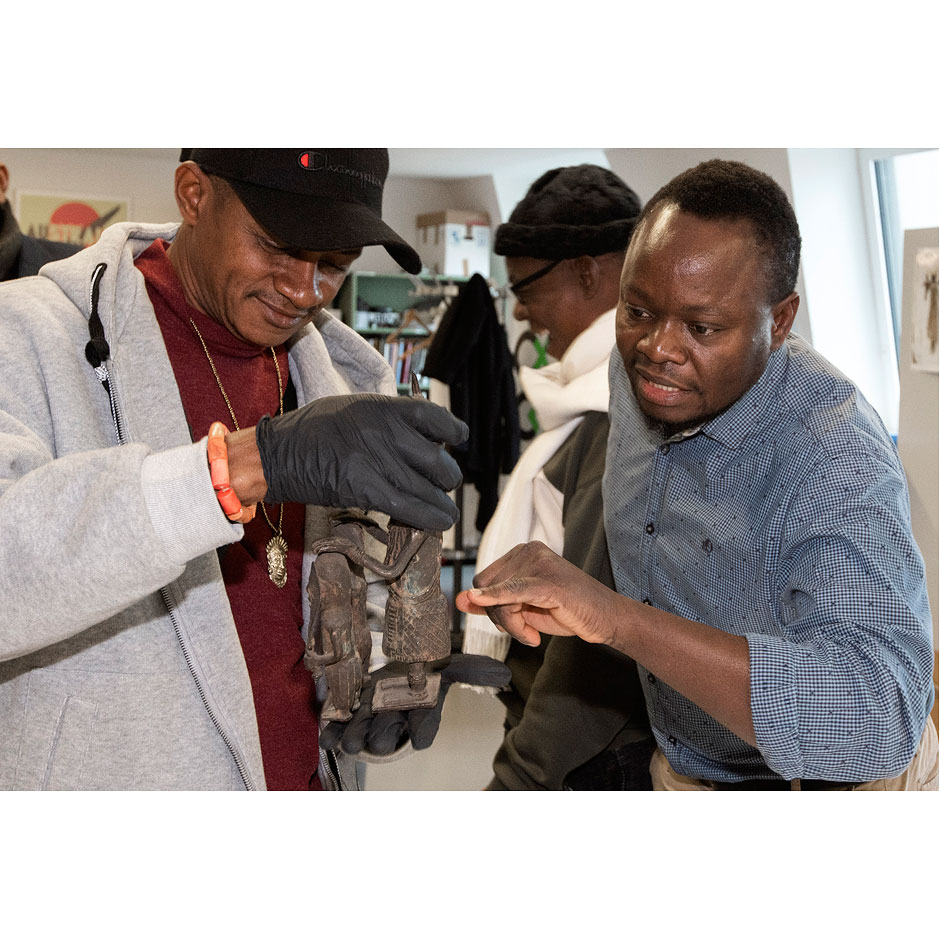SE-YA-MA
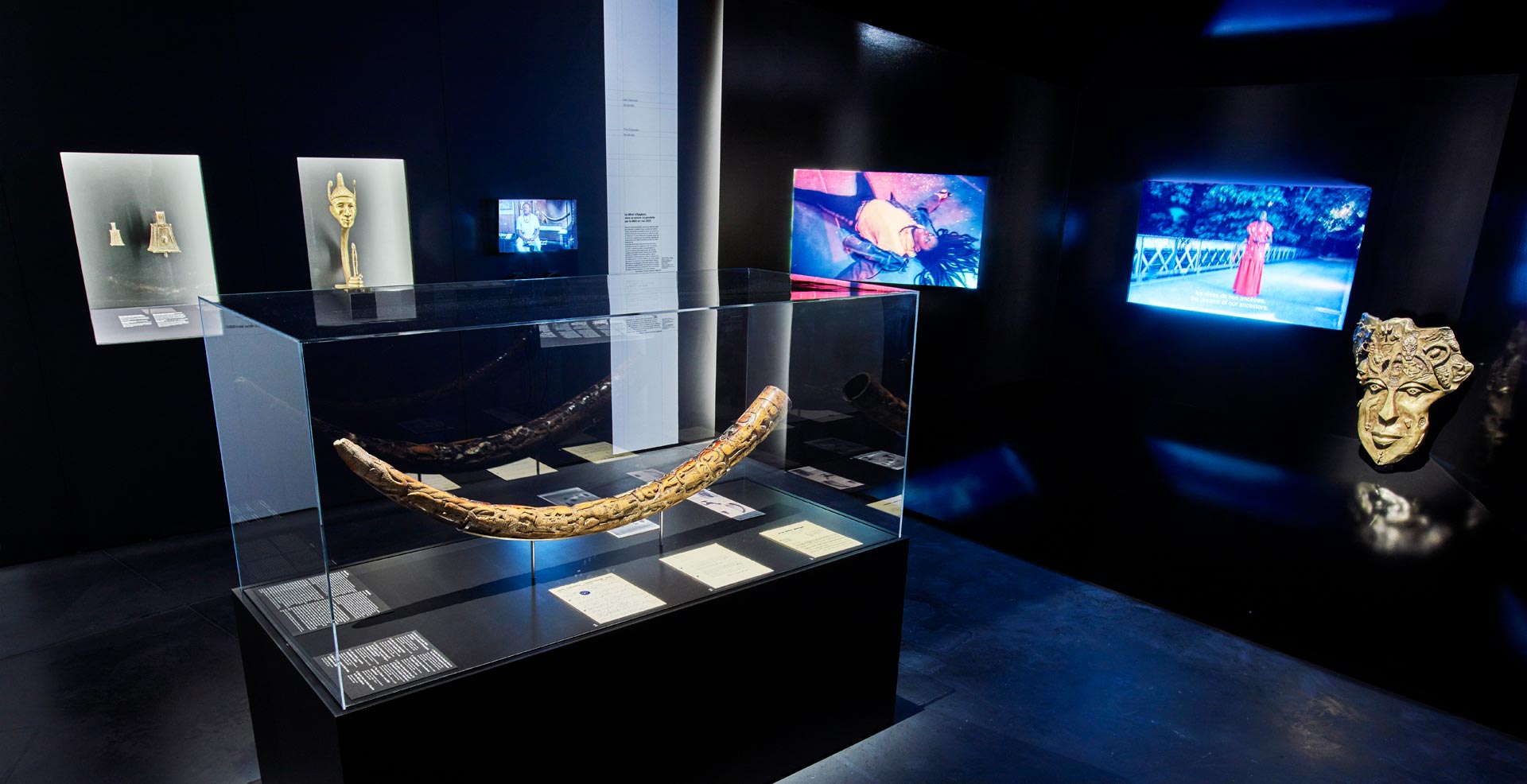
Floriane Morin, exhibition curator and curator in charge of African collections at MEG
In the Edo language, SE-YA-MA means «to remember». The artist Samson Ogiamien chose this verb to embody this capsule in which his sculptural and performative work is presented in dialogue with the objects from the Benin Kingdom (Nigeria) looted by British colonial troops in 1897 and dispersed on the art market during the 20th century. Our relationship was forged around Iyagbon’s Mirror, the show dedicated to the agony of museum objects disconnected from their ritual uses, which he co-wrote with the compagnie Onyrikon and which MEG co-produced in spring 2022. Our shared ambition to raise awareness of the duty to remember colonial violence, which museums must fulfil to address the futures of their collections, is an enduring one.
With these aims in view, the Benin Initiative Switzerland is run since 2021 by eight museums under the leadership of the Museum Rietberg in Zürich and supported by the Swiss Federal Office of Culture. The BIS is developing an increasing number of collaborative projects with its Nigerian partners, focusing on cultural heritage from the historic Benin Kingdom and held in Swiss institutions.
Floriane Morin/MEG
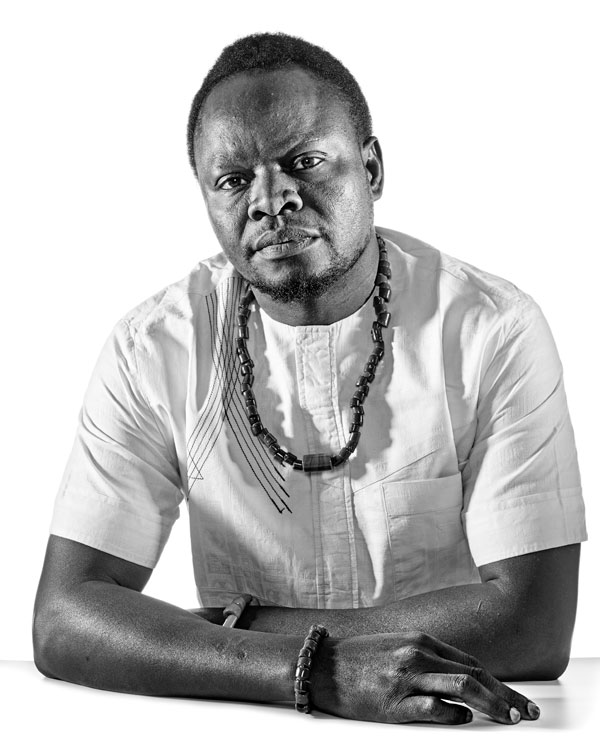
Samson Ogiamien
Samson Ogiamien was born in 1970 into the noble Ogiamien family, in Benin-City, Nigeria. He has been working as a freelance artist in Graz, Austria for several years. Of royal descent on his father’s side and born as it were into the caster’s trade on his mother’s, his art deals fundamentally with the structures of memory. At the same time, he often demonstrates how the special form of the bronze cast functions in its tradition and the importance it carries. Samson Ogiamien sees his art as a bridge between cultures and as an opportunity of bringing people together.
©Photo Johnathan Watts/MEG
Iyagbon’s Mirror, in its version co-produced by MEG in May 2022
In a western museum an artwork is stolen to become a ritual artefact. The audience is first surprised and then invited to join the action following the artists along a promenade leaving the museum. Outside an artistic ritual is held playing with the magical dimension which we are able to create around an object and inviting the audience to experience it.
This project was born by the encounter between the artistic universes of Samson Ogiamien and Juri Cainero. Juri is a European artist who has been experimenting and researching around the ritual and animistic roots of art for years. Samson is an African artist who lives in Graz working between African tradition and European everyday life. Iyagbon’s Mirror is a common project, born as a reflection of two mirroring yet opposite worlds. To this first reversed mirror one additional angle of reflection is added by Beatriz Navarro (Mexico) the choreographer of Onyrikon. Her somatic approach to movement and composition is an attempt to link the external with the internal world.
Compagnie Onyrikon & Samson Ogiamien
Extract from the Iyagbon's Mirror in May 2022 at MEG
Compagnie Onyrikon & Samson Ogiamien
Art directors: Juri Cainero, Beatriz Navarro, Samson Ogiamien Director: Juri Cainero
Choreography: Beatriz Navarro
Sculpture & performance: Samson Ogiamien
Stage manager: Daniele Bianco
Performers: Compagnie Onyrikon and Edo Cultural Art Forum
Recording and audiovisual production: Kumquat|Studio K
Video recording of Iyagbon's Mirror
Compagnie Onyrikon & Samson Ogiamien
Art directors: Juri Cainero, Beatriz Navarro, Samson Ogiamien Director: Juri Cainero
Choreography: Beatriz Navarro
Sculpture & performance: Samson Ogiamien
Stage manager: Daniele Bianco
Performers: Compagnie Onyrikon and Edo Cultural Art Forum
Recording and audiovisual production: Kumquat|Studio K
The Iyagbon's Mask in vitrine during the performance of the Iyagbon's Mirror in May 2022 at MEG
Towards a new phase of collaborations between Nigeria and the museums of the Benin Initiative Switzerland
On 2nd February 2023, the Swiss Benin Forum in Zürich brought to a close the first phase of the Benin Initiative Switzerland (BIS), which began in June 2021 with the financial support of the Swiss Federal Office of Culture.
Conceived as a basis for dialogue on the future of the collections of the eight BIS museums, a research report was officially handed over to the delegation representing Nigeria.
Together, the Nigerian delegation and the members of the Benin Initiative Switzerland promulgated the Joint Declaration of the Swiss Benin Forum . This joint declaration addresses the future of cultural heritage originating from Benin and held in Swiss public collections, as well as future scientific and cultural partnerships around joint museum projects.
The museums of the Benin Initiative Switzerland have declared that they are open to a transfer of ownership for the 53 objects that were looted or probably looted in 1897, when Benin City, capital of the Benin Kingdom, was looted by British colonial troops. This may involve the return, circulation or even loans to Swiss museums.
Benin Initiative Switzerland
In the second phase of the BIS, between 2023 and 2024, the museums will expand and deepen their research into the Benin Kingdom collections. Research and outreach will take place in close cooperation with the Nigerian project partners from the university, the national museums, the palace and the guilds. The joint research results will be presented to the public in 2024 in exhibitions, workshops and other events. In addition, the question of how to deal with the Benin holdings from Swiss museums in the future will be further negotiated - at the political and legal level in Switzerland as well as in Nigeria. An important goal of the follow-up project is to show how both Nigeria and Switzerland can benefit from this collaborative approach of the Benin Initiative Switzerland.
Benin Initiative Switzerland
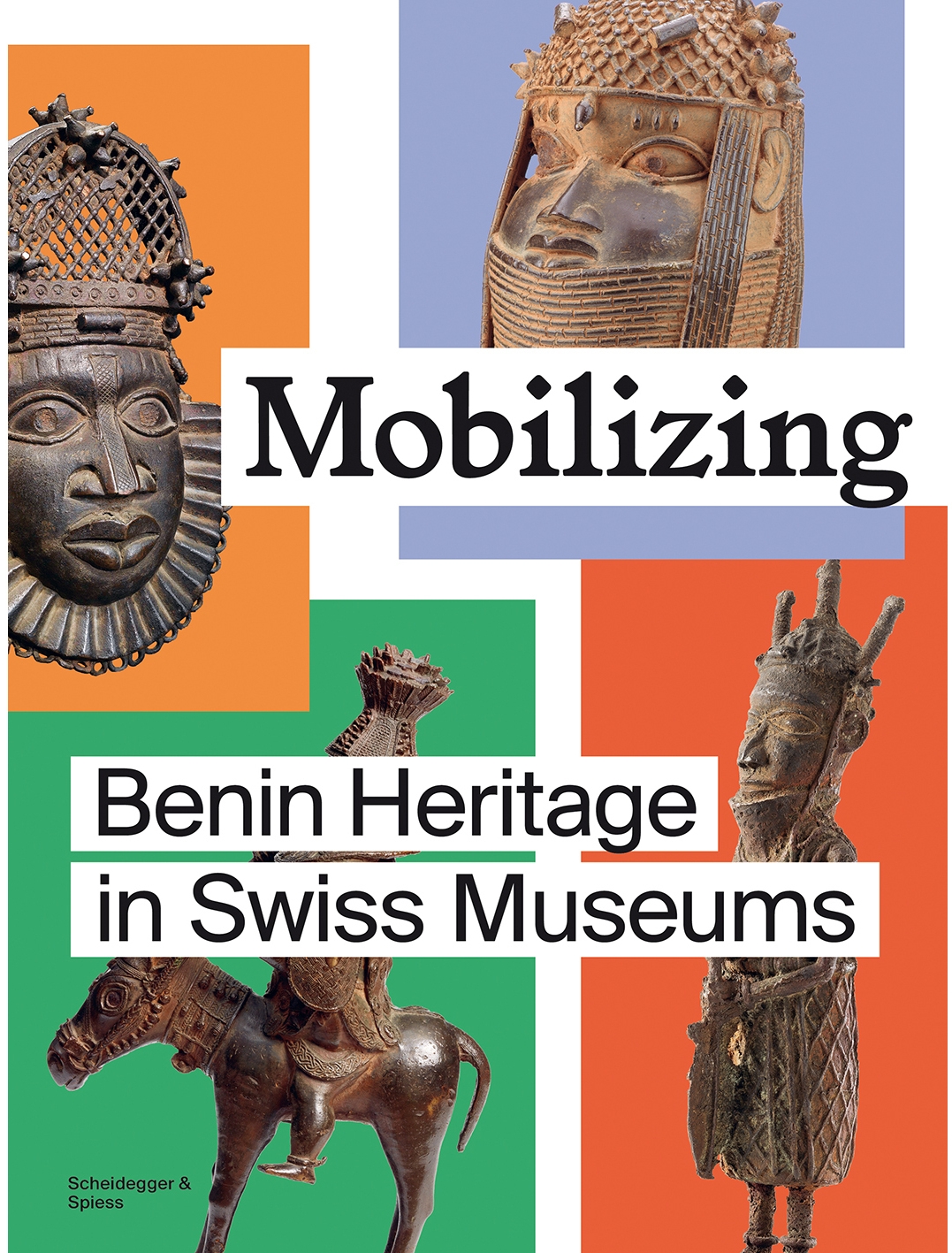
Mobilizing. Benin Heritage in Swiss Museums
Exhibitions
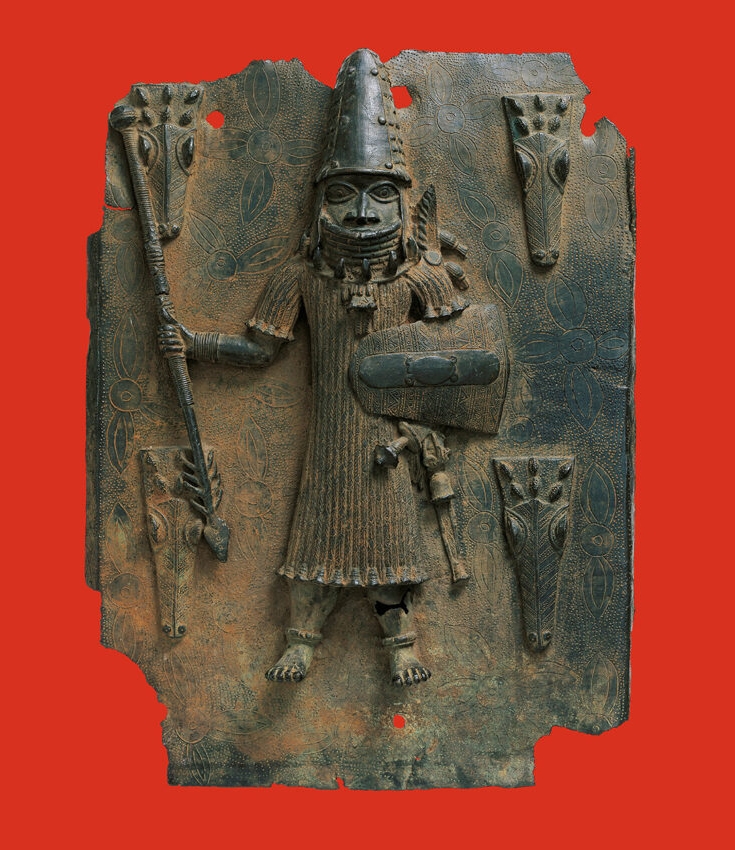
In Dialogue with Benin. Art, Colonialism and Restitution
Museum Rietberg
Zurich
23.08.2024 – 16.02.2025
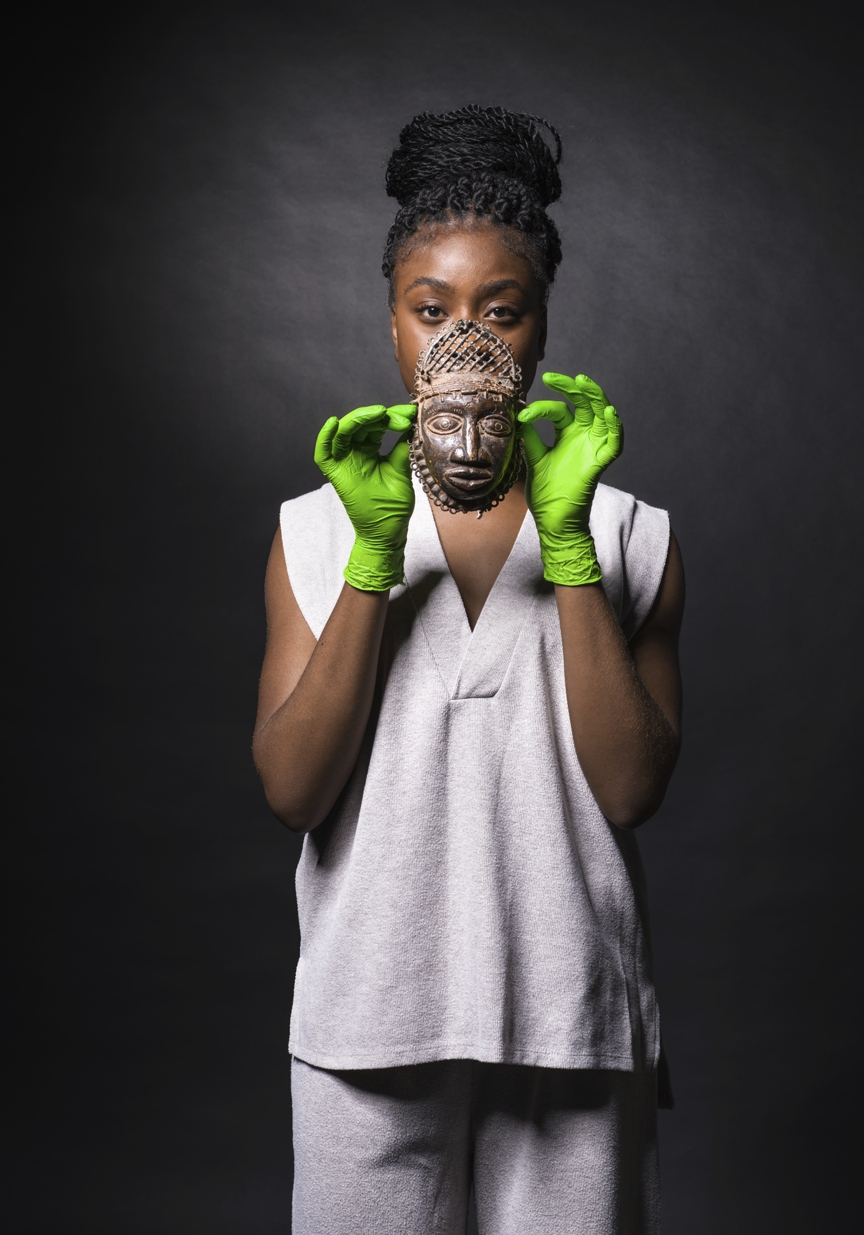
Benin Dues. Dealing with Looted Royal Treasures
Ethnography Museum of the University of Zurich
24.08.2024 - 14.09.2025
